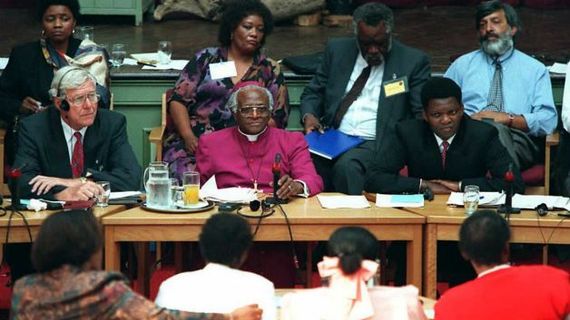"The root of not listening is knowing.
If I already know the truth, why do I need to listen to you?" -- Adam Kahane
How do we listen? Nineteen coaches from five continents were listening intently to each other. They gathered on a phone line to discuss the video "Making Peace With the Enemy," in which Jo Berry shares the incredible journey she's been on since her father was killed in a 1985 bombing by the IRA in Ireland. Jo's journey has included the development of an unlikely friendship with Patrick Magee, the man responsible for her father's death.
The people on the call were all graduates of the Arbinger Choice in Coaching Program, an international, mastery level coach training program that teaches a radical way to relate to others, starting with seeing the humanity in every person. On this call we listened on many levels... to each other, to Jo, and to the role of listening in her incredible story.
Soon after Jo Berry's father was killed, she committed to bringing something positive from her father's death. After the first time Jo and Pat met, Pat said it would have been much easier for him if Jo had been angry, vindictive. Starting with all his arguments, the injustices he'd suffered, his rationale, he defended his actions. Jo had listened attentively. After awhile he stopped and said, "I don't know anymore who I am." She'd disarmed him with empathy. She saw him to be a person of sensitivity. Her seeing him made him feel more transparent and vulnerable.
Adam Kahane, who has led truth and reconciliation processes in more than 50 countries, talks about that same humbling, break-through moment, when people on the opposite sides of a conflict suddenly see with empathy. Suddenly someone notices that the people they've been demonizing and often killing, are, in fact, not so different from themselves. Jo says, "When I really hear someone's story -- I know I could have been their mother, sister, daughter." When compassionate realization comes to even one person in a truth and reconciliation type meeting, and they express it, everything changes. Empathy has arrived. The hostility drains out of a room of adversaries. They are suddenly all simply people, trying to live their lives the best way they can.
In light of the recent Paris attacks, it is becoming clearer that we need to figure out a new way forward. "Punitive justice," attacking back, doesn't bring healing to either side. Jo talks about "restorative justice" instead. The term "restorative justice" has mostly been used regarding treatment of criminals. It emphasizes repairing the harm caused by criminal behavior. It involves cooperative processes including all stakeholders. At its heart is listening -- listening for the humanity of the "other." It can lead to transformation of people, relationships, communities and nations.
Gene Knudsen Hoffman, Quaker peace activist said it well:
We peace people have always listened to the oppressed and disenfranchised. That's very important. One of the new steps I think we should take is to listen to those we consider "the enemy" with the same openness, non-judgment and compassion we listen to those with whom our sympathies lie. Everyone has a partial truth, and we must listen, discern, and acknowledge this partial truth in everyone -- particularly those with whom we disagree.
I'm ashamed to say I'm often busy forming my rebuttal when talking with someone who holds a different position or opinion. I don't listen. We both keep saying the same things over and over, only louder. We don't take in anything new.
With the holidays approaching, and the election cycle beginning, this scene is likely to play out in homes all over our country. Uncle Vinny loves Donald Trump and Uncle Frank can't stand him. What if, instead of jumping into the fray, we vowed to really listen? Listen to understand. Instead of countering with our own pat position, what if we asked, "What is it you like about Trump?" And after his answer, we asked, "And what else? I really want to understand where you're coming from." I suspect conversations would be very different. More useful. Peaceful. Hopeful. This could be our beginning contribution to peace. Right at our own dinner table.
Listening to Ourselves
Then there's this. Jo Berry talks about how this kind of listening, with an open heart, is not something you simply decide to do for the rest of your life. It's a daily choice. And it helps if we practice listening to the stories we tell ourselves in our heads. She recommends asking yourself, "Is this the most helpful story I can tell myself?" If it is not, change it. Tell yourself a more useful story.
The 19 coaches were listening on many levels: To each other, to Jo Berry, to Jo listening to Pat, and to the stories in our heads. I hung up the phone and said out loud, "We CAN listen our way to peace." It felt big and important.
Coaching Tips/Questions
- How well do you listen? Practice noticing, especially when you're listening to someone with a different view from yours. Are you open to learning from them?
- With whom could you listen more fully, more open heartedly?
- As an experiment, agree to practice listening with one person until you have understanding
- As you listen to the stories in your head, how about asking yourself, "Is this the most helpful story I can tell myself?" If it isn't, change the story.
